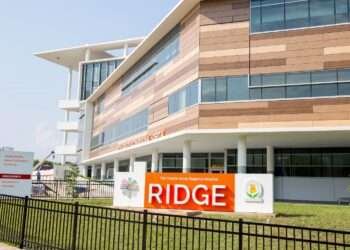Finance lecturer at the University of Ghana Business School, Dr Benjamin Amoah, has revealed that the maintaining of the monetary policy rate by the Bank of Ghana is expected.
According to him, there are some indicators which clearly informed the decision the monetary policy committee took regarding the policy rate. In light of this, he stated that the policy rate being maintained at 30% is a “fair reflection of what we are experiencing on our money market”.
“It is expected because if you look at the trend, especially what has happened between the last policy release and what we are hearing now, fundamentally, most of the things are the same. In fact, inflation had a slight inch up of 43.1%, if you look at exchange rate in particular, it has been relatively stable with the midrate being around GHC11.05 to one dollar…”
Dr Benjamin Amoah
Commenting on whether he agrees with the BoG Governor’s statement that earlier actions taken has led to the control in inflation, Dr Amoah stated that if the Central Bank takes the blame when things are not going right, then if the country is witnessing some reversal in the trend, it must be lauded.
He explained that Ghanaians “must be fair enough to give them the commendation they deserve for reversing the rate and making sure the rate is on a downward trend that makes credit affordable”.
“The Governor mentioned inflation, he went on to mention expected inflows from IMF, he also went ahead to talk about the expected cocoa syndication loan and how that will cushion the system into the last quarter. So clearly, these together with other initial interventions that the Central Bank together with the ministry of finance have put in place is what we can say for now is contributing to the rates that we are seeing.”
Dr Benjamin Amoah
Cost of borrowing for businesses
Furthermore, Dr Amoah reckoned that it is good for government that the overall outlook is positive in the sense that if the current trend should continue, then one would be expecting a decline in rates going forward. However, he underscored that the BoG Governor was very quick to caution that there are two main things that may reverse the expectation of a downward trend – crude oil and utility prices.
“These two, if it does not favor the economy, then we are going to see an increased rate, but from the expectation, they are very positive that the rate will continue to decline.”
Dr Benjamin Amoah
With regards to what this could mean for businesses, Dr Amoah stated that for now, the posture of the rate is relatively stable. As such, he noted that in terms of contracting loans, it is not going to be that different from what it was in July.
“What we need to understand here is that what is going to trigger changes in rates will now be on the risk premium of each borrower that goes to financial institutions to borrow. In other words, the signaling rate is the same – 30% for July, 30% for September. So, the difference will now be on how risky the borrower is and what the borrower will use the money for…”
Dr Benjamin Amoah
Meanwhile, Dr Amoah expressed concern on the cost of sourcing funds for some businesses from savings and loans and microfinance subsector of the financial services industry. This, he indicated, is because for the banks, most of them will prefer not to do business with certain clientele group.
In light of this, he revealed that a large pool of the informal sector will now have to fall on the savings and loans and microfinance.
“Trust me, monetary policy rate of 30% will not trickle down well with those who source for funds with microfinance. It is going to be very expensive for these individuals to contract from the savings and loans and microfinance. So, what we are saying here is that the rate looks relatively stable for corporate borrowers and for high street bankers, but for a greater proportion of the informal sector, cost of credit is still high…”
Dr Benjamin Amoah
READ ALSO: Sam George Predicts Several NPP MPs Running As Independent Candidates























